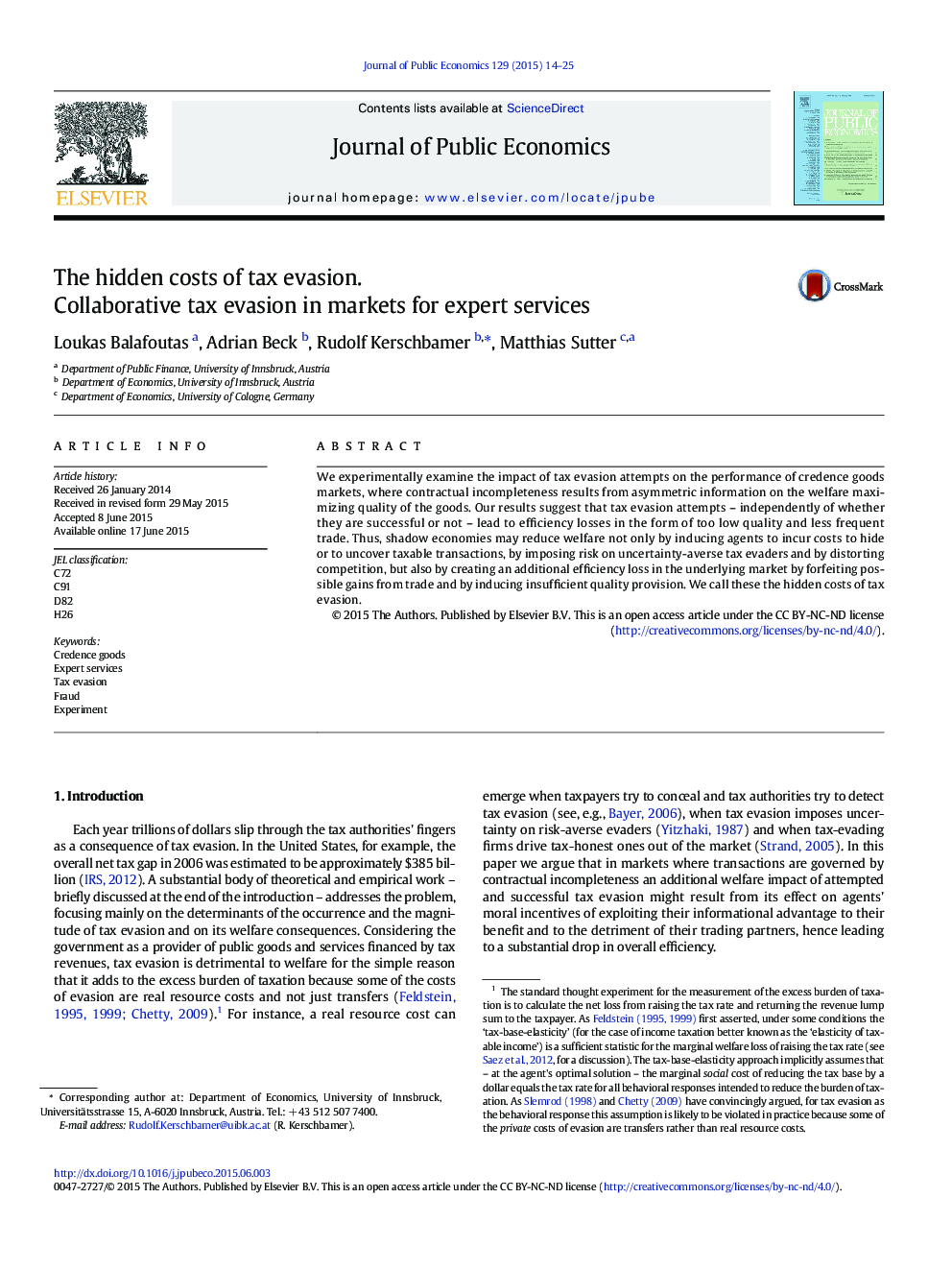| Article ID | Journal | Published Year | Pages | File Type |
|---|---|---|---|---|
| 7369956 | Journal of Public Economics | 2015 | 12 Pages |
Abstract
We experimentally examine the impact of tax evasion attempts on the performance of credence goods markets, where contractual incompleteness results from asymmetric information on the welfare maximizing quality of the goods. Our results suggest that tax evasion attempts - independently of whether they are successful or not - lead to efficiency losses in the form of too low quality and less frequent trade. Thus, shadow economies may reduce welfare not only by inducing agents to incur costs to hide or to uncover taxable transactions, by imposing risk on uncertainty-averse tax evaders and by distorting competition, but also by creating an additional efficiency loss in the underlying market by forfeiting possible gains from trade and by inducing insufficient quality provision. We call these the hidden costs of tax evasion.
Related Topics
Social Sciences and Humanities
Economics, Econometrics and Finance
Economics and Econometrics
Authors
Loukas Balafoutas, Adrian Beck, Rudolf Kerschbamer, Matthias Sutter,
